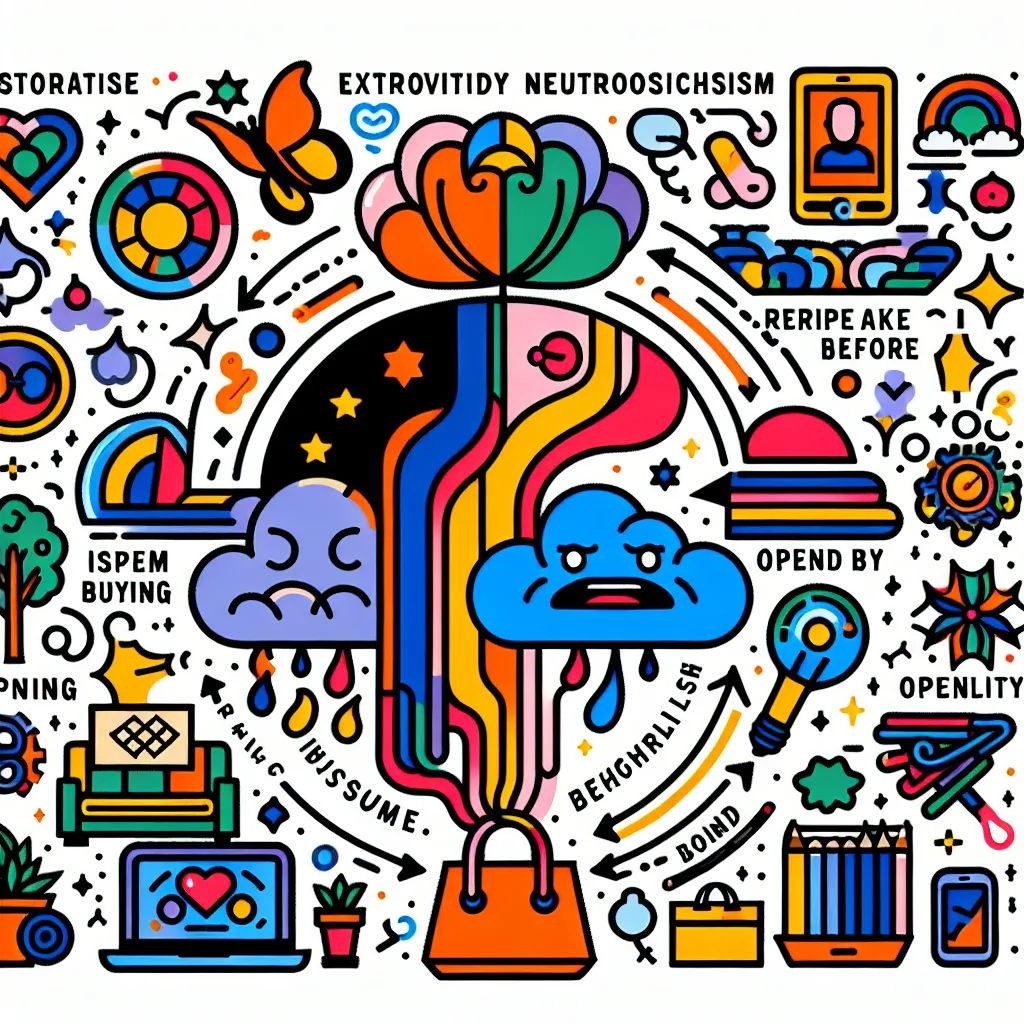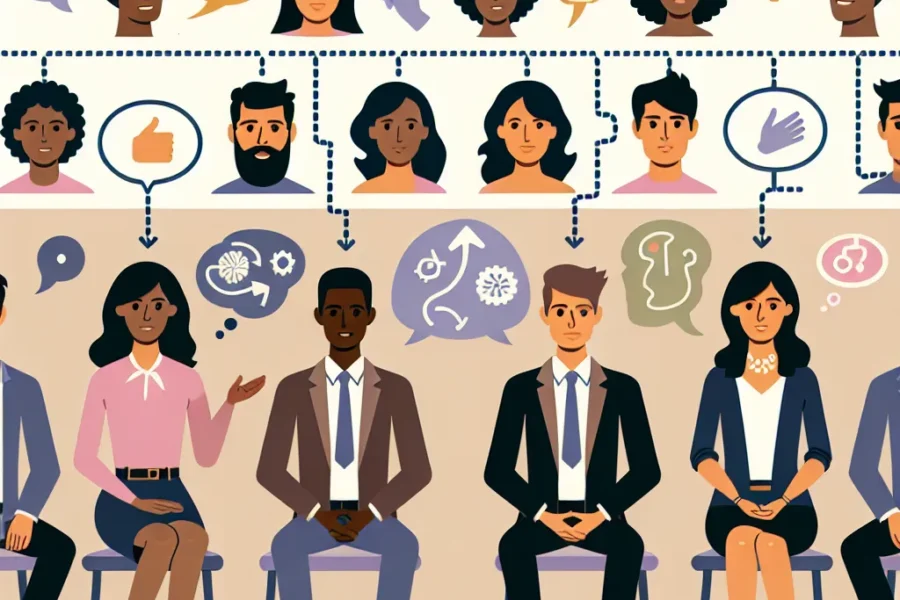Personality plays a foundational role in consumer behavior, serving as a lens through which individuals view and interact with the marketplace. Understanding the intricate relationships between personality traits and consumer actions offers invaluable insights for marketers seeking to tailor their strategies to resonate with their target audiences.
At the heart of this dynamic lies the concept of personality, a complex construct that encapsulates an individual’s consistent patterns of thoughts, feelings, and behaviors. Each person’s unique personality influences their preferences, attitudes, and choices, including those made as a consumer. Traits like openness, conscientiousness, extraversion, agreeableness, and neuroticism, commonly referred to as the Big Five personality dimensions, have been the basis of numerous studies exploring the interplay between personality and consumer habits.
Openness is characterized by a person’s willingness to embrace new experiences, curiosity, and a broad range of interests. Consumers with high levels of openness are more likely to try new products, pursue innovative brands, and engage with creative marketing campaigns. They crave novelty and unique experiences, making them an ideal target for companies launching cutting-edge or unconventional products.
Conscientiousness, on the other hand, is marked by traits such as organization, dependability, and discipline. Highly conscientious consumers tend to prefer established brands that reflect their values of reliability and quality. They approach purchasing decisions methodically, often weighing the pros and cons before committing to a choice. These consumers are attracted to messages that emphasize product durability, value-for-money, and practical utility.
Extraversion is associated with sociability, assertiveness, and excitement-seeking. Extroverted consumers often respond positively to marketing tactics that involve social contexts, such as shared experiences or group-oriented activities. They are likely to be brand advocates, sharing their favorite products and services with their social networks. As such, strategies leveraging social media engagement and word-of-mouth can be particularly effective with this segment.
Agreeableness reflects a person’s tendency toward compassion, cooperation, and trust. Consumers high in agreeableness are drawn to brands that exhibit ethical practices and social responsibility. They respond well to community-oriented campaigns and brands that showcase a commitment to charitable causes or societal improvement.
Neuroticism captures the level of emotional stability and anxiety present within an individual. Consumers with elevated neuroticism may display brand loyalty as a means of reducing uncertainty and stress associated with the purchasing process. They are often responsive to marketing that provides assurances, risk reduction, and clear information that can alleviate their decision-making anxiety.
Another personality-related concept that influences consumer behavior is materialism. Materialistic consumers place a high value on acquiring and possessing products as a way to achieve happiness or social status. They are more likely to engage with luxury brands or partake in conspicuous consumption, seeking items that signify wealth and success. Marketers targeting this group often employ strategies emphasizing exclusivity, prestige, and the hedonistic pleasures associated with their offerings.
Self-concept, or the way individuals view themselves, is another personality characteristic that can shape consumer behavior. A person’s self-image can significantly impact the brands they choose and the products they buy, as these choices often serve as extensions or expressions of their identity. For example, an individual with a strong environmental consciousness may opt for eco-friendly products to align their purchasing behavior with their self-perception and values.
Beyond these traits, lifestyle and psychographics play important roles in the intersection of personality and consumer behavior. Lifestyle refers to the way in which individuals allocate their time and money, reflecting their priorities and life choices. Psychographics delve deeper into consumers’ psychological attributes, including their interests, opinions, and activities. When combined with demographic data, these psychographic insights can help marketers create highly targeted campaigns that resonate with specific personality types.
In the digital age, personalization has become a key strategy in aligning with consumer’s personality traits. With the advent of big data and sophisticated analytics, brands can tailor their marketing messages and offerings to fit the unique preferences of their customers. As a result, consumers increasingly expect personalized experiences that cater to their individualistic characteristics, enhancing their satisfaction and loyalty to a brand.
However, tapping into personality to influence consumer behavior must be done ethically and responsibly. With concerns over privacy and data security on the rise, companies must navigate the balance between personalization and intrusive overreach. It’s crucial that marketers respect consumers’ boundaries and use personality insights to add value to the customer experience rather than exploit vulnerabilities.
In conclusion, the role of personality in consumer behavior is multifaceted and profound. Personality traits shape every aspect of consumer choices, from product selection to brand engagement. By understanding and leveraging these dimensions responsibly, marketers can design highly effective strategies that not only meet the needs of their target consumers but also foster long-term brand loyalty. As the marketplace evolves, so too must our appreciation for the individual differences that drive consumption patterns. By continuing to delve into the psychology behind consumer behavior, businesses can unlock the potential to cultivate meaningful connections with their audiences, grounded in a deep understanding of the human personality.



Leave a Comment